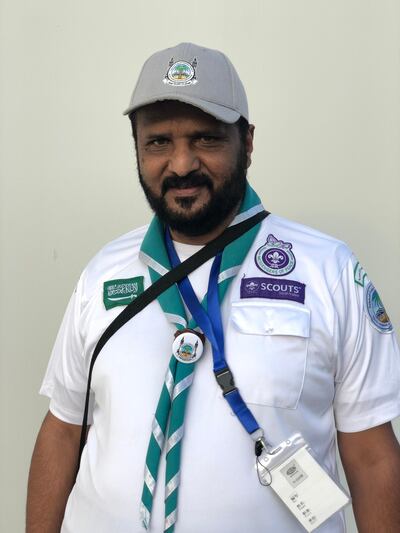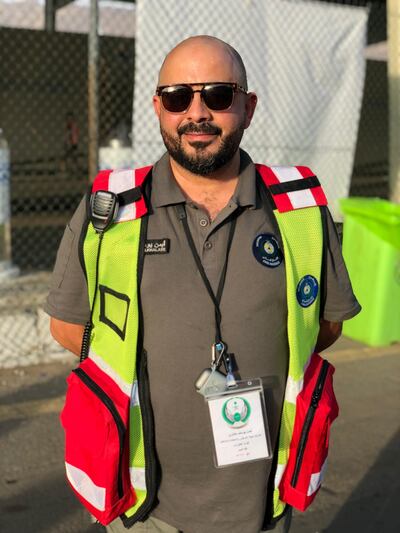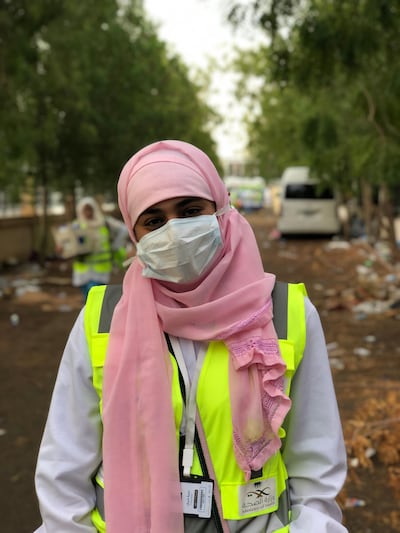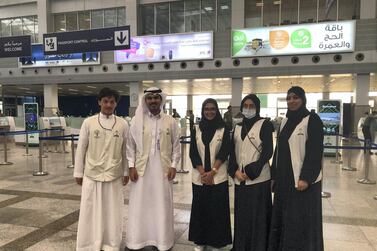It is said there is no greater feeling than of completing Hajj, but the volunteers who guide the pilgrims on their gruelling journey say helping them achieve their Islamic duty comes pretty close.
More than two million people began leaving the holy city of Makkah on Tuesday, kicking off one of the world’s biggest clean-ups. The pilgrims had come from around the world and were welcomed by helpers stationed in Makkah, Madinah and Jeddah.
Volunteers from the 13 provinces of Saudi Arabia, and aged between 12 and 60, converged on the holy sites this week to help Muslims complete their pilgrimage.
“I see Hajj volunteering as an act to get close to God and it is an honour to serve the pilgrims,” said Sayed Al Qahtani, from Asir.

The 52-year-old leader of the Saudi Arabian Boy Scouts Association has been volunteering at Hajj for the past 18 years.
The scouts fly in from across the Kingdom to volunteer; they can be found at heath centres and information points — 300 metres apart — at the holy sites. They help pilgrims navigate their journey and assist anyone who may become lost from the six dedicated lost and found centres at Arafat.
“Nothing beats seeing a woman reunited with her husband, or a mother with her child,” said Mr Al Qahtani, who has helped reunite hundreds of families during his time as a volunteer.
Other volunteer teams included about 150 personnel from civil defence stations. Known as the Salam team, half this year’s group were women.

“Our main role is to ensure the safety of the public. Our second role, which usually is more needed on Arafat day, is providing first aid,” said Ayman Khalwai, 38, who has been volunteering with the Salam team for the past 5 years.
He said the Haji’s Duaa — or prayers — keep him coming back each year.
“When we help them and they pray for us saying ‘may God smile upon you’, it makes us feel happy,” he said.
Mr Khalwi said hearing those words from pilgrims dispels any doubt he may have about volunteering again — particularly after working non-stop for 15 hours.
“Worse than the shift is the traffic. When we are heading to the provided residence away from the holy sites, sometimes it takes between four or five hours to arrive, leaving very little time to sleep or rest,” he said.
Despite the hot weather and the long hours', many Saudis see Hajj as their calling.
“Volunteering in Hajj is my passion. If I stayed at home and missed it, I would cry,” said Dr Roqya Kamal, a medical resident.

“There is a lot of action and many challenges when working in Hajj but it makes me know myself better. It makes me stronger,” she said.
Ms Kamal, 25, volunteered this year with the Saudi Academy for Medical Volunteering. It was her third Hajj.
Volunteers with SMAV are obliged to pass 42 hours of a medical volunteer training, organised by the Ministry of Health, before they are allowed to join.
The team are based in Makkah and commute daily in parallel with the pilgrims' route; from Mina, then to Arafat, Muzdalifah then back to Mina.
This year, more than half of the 400 volunteers, who are all medical students, were women. Part of their jobs are to collect medical data that will be used to inform health strategies for next year’s Hajj.
Other volunteers signed up to Kon Awnan — a government initiative that encourages Saudi Arabians to help out during Hajj.
This year, more than 3,000 people registered for the initiative and were trained for a week before being deployed across the holy sites in Makkah and Madinah and in the Hajj Terminal in Jeddah.
Samaher Hejazi, 24, one of the Kon Awnan volunteers, said the most exciting part was the people she got to meet.
“I met so many people from different backgrounds. It was truly a learning experience. It might be my first time in Hajj but sure it is not the last.”






